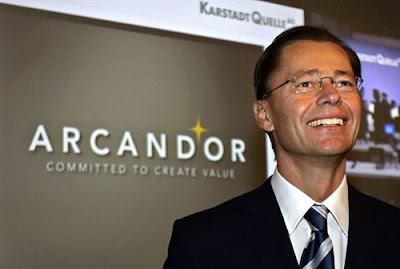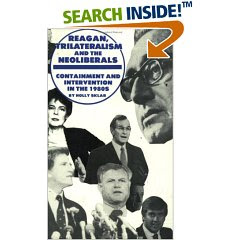Some follow-up debate on Hillary in '12 and Obama from ICE-mail:
UPDATED THREADS AS THEY COME IN:
LAST UPDATE: SUNDAY, May 11, 10:30 PM
Michael Fiorillo, Chapter leader, writes (also posted on the ICE blog): Hello All,
While it's impossible to underestimate the Clinton's compulsive will to power - which has a hint of the pathological to it - I find the idea of Hillary destroying Obama'a chances of defeating McCain, so that she can be a viable candidate in 2012, a bit of a stretch.
She already has a immovable bedrock core of people who intensely dislike her, for reasons valid and invalid, and a determined campaign to destroy Obama would send her negatives among Democrats and Independents off the charts. It's not that she, and certainly Bill, aren't capable of doing such a thing; it's that I think they are still sufficiently reality-based to see that it would likely forever poison the well against them. An honest cost-benefit analysis on their part would show that it would have only a remote chance of succeeding, while hampering their marketability as spokespersons for neoliberal trade policies, which seems to have been Bill's bread and butter in recent years.
As for Obama, appealing as he is on many levels, don't expect his election alone to successfully push forward a progressive, let alone radical agenda.
Please keep in mind that since his election to the senate, he has:
- campaigned for Lieberman against Ned Lamont in Connecticut.
- voted for all funding for war in Iraq.
- voted to renew the Patriot Act.
- voted for the 2005 bankruptcy bill that was virtually written by the banks and credit card companies.
- voted to limit the ability to file class action lawsuits. Hillary voted against this bill.
- supported merit pay for teachers and the expansion of charter schools
I raise these points not to imply that we should refuse to work and vote for him. I voted for him in the primary with - considering the political history of the past 35+ years - a fair degree of enthusiasm; I'll do so again in November if given the chance.
However, don't think that a lot will happen unless he is pushed hard from, I hesitate to say it, the left. Wall Street, and especially Hedgistan, is investing heavily in Obama's campaign, no doubt seeing it as venture capital investment to establish an equity stake in a possible Obama administration. Unless there is a surge of activism on many fronts, these people will continue to set the terms of debate. As teachers, we've borne some of this, as Wall Street, corporate and foundation money has flooded into education, buying research and policies that undermine public education and teacher's unions in the "marketplace of ideas."
Fortunately, there's evidence that perhaps the tectonic plates are shifting somewhat. The May First ILWU strike explicitly protesting the war in Iraq on the West Coast docks was a profound event, underreported as it was. UAW members have been on strike against American Axle since February, fighting a two-tier wage system. There have been protests on Wall Street against the predatory nature of the credit system. Here in NYC, we may be seeing some cracks appearing in BloomKlein's PR fortress.
By all means, let drive a stake through the Clinton's hearts - politically speaking, of course - and vote for Obama in November. Let's not just leave it up to him after that.
Best,
Michael Fiorillo
George Schmidt responds 5/11/08
I didn't say that Barack Obama was even a New Deal liberal. He's a University of Chicago neo-liberal, and part of the fan club of Richard M. Daley's version of "school reform." We've already reported that. And will continue to do so.
Obama is not a socialist, nor is he even a New Deal Democrat. If you read his policies closely, he is to the right of Richard M. Nixon on some things, and standing with Nixon's policies on others. If you want to know the environment he works in, read the blog of his colleagues Gary Becker (University of Chicago economics theologian) and Richard Posner (most prolific judge on the Seventh U.S. Circuit).
He has never distanced himself from Richard M. Daley on corporate "school reform" or the use of biased "standardized" tests for a "bottom line" on "school reform."
Fact is, his roots are closer to the working class in Chicago -- both his work and his in-laws -- than any candidate we've had since Bill Richardson or Dennis Kucinich. Michelle Obama comes from a union family, and until they slowly became millionaires, both Obamas were counting coupons every weekend.
I'll take him as President of the United States because at this point we're going to trash some white supremacy on the way to realizing all the class issues that have been covered up.
George N. Schmidt
Editor, Substance
www.substancenews.net
My 2-cents on Hill in '12 is that they have just about gone as far as they can and will begin to pull back to mend fences. The last comment about Obama's inability to win white working class votes may have been the last straw. The question I raise is "What is good for the Clintons?" (Have we not seen how the UFT operates under the same mantra - what is good for the leadership is more important than benefitting the members?) And that answer is an Obama loss, the bigger the better. The damage may have been done to Obama, so now they can begin to mend fences. And they are very good at that, though they may have lost the black community forever. Except in the UFT's Unity Caucus and New Action where people will sacrifice integrity for whatever they get.
Back to Norm:I want to reiterate this point:
90% of African Americans have voted for Obama. Is there not one African American member of Unity caucus that supports Obama? A statistical impossibility.
Not a peep out of Unity or New Action or any caucus for that matter about the total support for Hillary. ICE-mail at least has been vetting the pro and anti Obama debate and the nuances of both candidates. The Unity machine has shut out all debate. On all issues.
That is part of the unhealthy death pall that surrounds this union.
Back to Michael: Hello George and Everyone,
Though aware of Obama's U of Chi provenance, I neglected to mention it in my post. However, if anything it validates my argument and adds new levels of paradox to the situation. In terms of economics alone, his U of Chicago connections should send a chill down the spine of anyone seeking a more just and fair world.
Your post seems to imply that vitually the only reason to vote for Obama is as an attack on white supremacy, a morally and strategically necessary thing. However, even here there are complications and reasons for critical distance:
In the chanting that "Race Doesn't Matter" at Obama events, and in the explicit and implicit messages of the campaign, there is more than little suggestion of naivete and ideological pacification. Naivete can be forgiven; the realities of class and race in the US will take care of that for those who have the intellectuall honesty to be conscious. But willful pacification of America's "original sin" cannot be excused.
In a recent posting on Doug Henwood's indispensable Left Business Observer (www.
leftbusinessobserver.com), Adolph Reed is quoted, in regard to Obama's "post-racial" discourse, that with Obama there is a danger that
"...inequality could lose whatever vestigial connotation it has as a species of injustice
and be fully consolidated as the marker, on the bottom that is, of those losers who
who failed to do what the market requires of them or as a sign of their essential
inferiority."
Is an Obama presidency going to thrust the nation forward to new era of equality and justice, or will it be an excuse to "move on" and get "closure?"
As I said, I'm going to vote for the man; I'd sooner vote for hope than fear. But my personal hope is that his election will result in an citizenry aroused by increased democratic expectations on many fronts, and that it will force him and his handlers to respond righteously.
Best,
Michaell Fiorillo
From a retired African-American teacher: Norm: I've read and criticized everything I can find on the flap over Hillary's speaks for itself statement on the so-called "white working class." Your piece on the permanent damage to Hillary's credibility with the Democrats' hard-core constituency in the Black communities and their voters is right on the money. And it is reasonable to assume that Hillary is deliberately disparaging of Obama to weaken him vis-a-vis the Republican front-runner, McCain. In this regard, Hillary has issued a brutal call for the white race to rally to support her opportunist campaign for the Democratic presidential nomination, as if such white genies can be manipulated by her or any other politico once let out of the bottle. All this shit hinges on the fictitious assertion that Barack Obama is too "elite" to connect to such "hard working white people," despite the fact that Obama, grounded in his own working class roots, has been getting a remarkable degree of support from working people of all ethnic groups, against the Clintons' usually disguised white race call-out in state campaign after state campaign.
So Norm, keep on pushin'.
Critically yours,
C
Anonymous: As delegates left last month's assembly and got outside the door, many took off their Hilary buttons immediately. White and black.
 Middelhoff, Joel Klein's former boss, laughing at the joke of a NYC School system he helped bring about through his promotion of Joel Klein.
Middelhoff, Joel Klein's former boss, laughing at the joke of a NYC School system he helped bring about through his promotion of Joel Klein.




